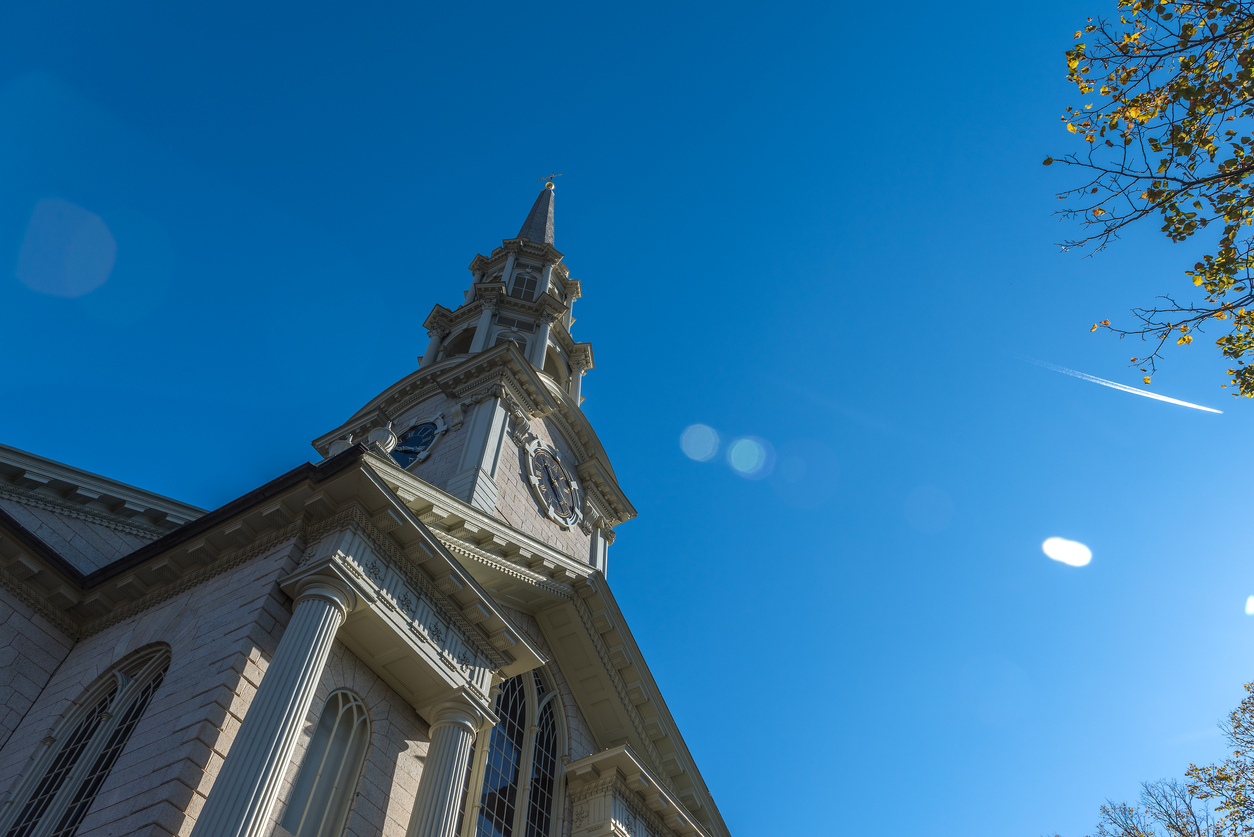When states began disestablishing churches, there were sometimes disputes as to whether former established churches should be able to keep properties for which their governments had previously collected taxes. As a general rule, they were able to do so, as illustrated by the case of Terrett v. Taylor (1815) in Virginia, which relied chiefly on the doctrine of vested property rights. Similarly, in Beatty v. Kurtz (1853), the Supreme Court cited common law principles to uphold the grant of land by a donor to the Georgetown Lutheran Church in Washington, D.C.
Just as Protestant churches once split from the Roman Catholic Church, and later from one another, so too, modern American congregations and denominations have split over such matters as gay marriage, gay or female ordination, and matters of biblical interpretation.
Although the First Amendment establishment and free exercise clauses were designed to insulate governments from such doctrinal disputes, courts often have to decide which of two bodies in a splitting church are entitled to ownership, and in cases where churches split completely from a denomination, whether the denomination owns the property or the members of the individual churches do.
Supreme Court declines to be arbiter of religion in church disputes
In England, courts attempted to resolve such matters by deciding which faction was truest to the church’s original faith. In Watson v. Jones (1871), the U.S. Supreme Court rejected that rule, which is arguably more appropriate for polities like England where there is an established church than in a nation that acknowledges no established church. In Watson, involving a Kentucky Presbyterian congregation that had split over the issue of slavery, the court ruled for the anti-slavery faction because it reflected the position of the denomination’s governing body. The Supreme Court had faced a similar issue involving Methodists in Smith v. Swormstedt (1853) where it allowed southern Methodists who had split from northerners over the issue of slavery to receive a share of funds from the sale of books that had been held in a common fund.
The court reaffirmed Watson’s departure from the English rule in Presbyterian Church in the United States v. Mary Elizabeth Blue Hull Memorial Presbyterian Church (1969), which ultimately awarded ownership to other Presbyterian churches that had moved from one body to another. In that case, Justice William Brennan ruled that the departure from doctrine standard, which was used in England, “can play no role in any future judicial proceedings.”
Courts may rely on neutral property law in deciding church disputes
Since then, courts have typically applied one of two standards. One is to award property to the denomination if the denomination is hierarchically arranged, as, for example, Roman Catholics, Episcopalians or Presbyterians, while giving it to the majority faction of a splitting local church if the church is congregational in nature as with Quakers, Baptists and congregational Methodists.
One problem with this classification is that many churches fall somewhere in between. Moreover, such decisions may or may not accord with the wishes of the original donors as to whether they were contributing chiefly to the local church or to the denomination of which it was a part.
Moreover, in Jones v. Wolf (1979), the Supreme Court ruled that it was permissible to rely instead on neutral principles of property law within each state, directing attention to deeds, trusts, corporate charters and similar documents rather than to rules of denominational polity.
As a result, jurisprudence varies from state to state and even within states. Some courts have continued to rely chiefly on the distinction between churches that are arranged hierarchically and those that are arranged congregationally. Others have attempted to apply strict neutral principles of property law. Still others have applied a mixed model, in which they attempt to combine considerations of local property law with denominational rules.
Such disparities make this a tricky area of the law in which to navigate. It has imposed financial burdens on individuals and churches engaged in litigation and has led some scholars to advocate for strict application of neutral principles of property law (Chapman and McConnell 2023, 183-184).
John Vile is a professor of political science and dean of the Honors College at Middle Tennessee State University. This article was published on Dec. 11, 2023.

